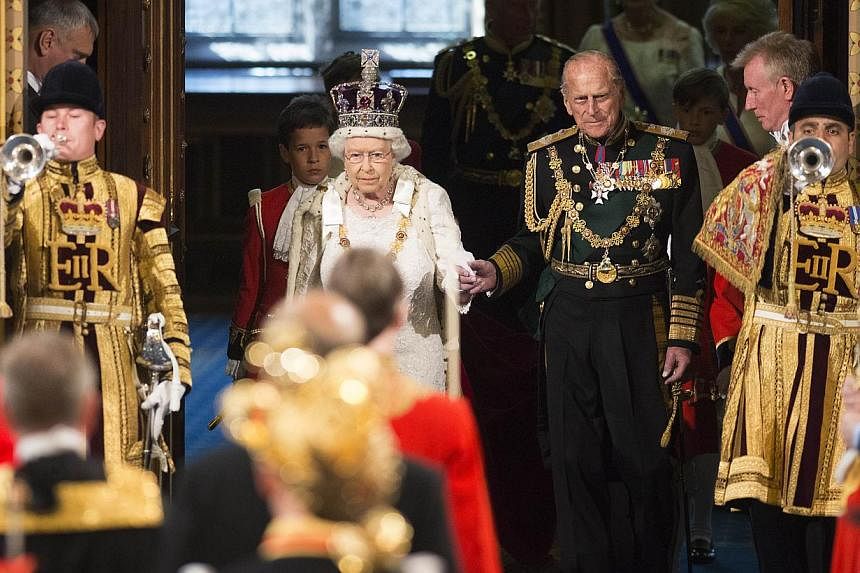LONDON (Reuters) - Britain's Queen Elizabeth set in motion on Wednesday the new government's plans for an in-out referendum on staying in the European Union, but left open questions about when it will be and what changes to the EU the government wants beforehand.
Prime Minister David Cameron, who says he would prefer to stay inside a reformed EU but isn't "ruling anything out" if it fails to change, was re-elected on May 7 on a pledge to reshape ties with the bloc before allowing Britons to vote on whether to stay or leave.
Donning her crown as she sat on a gilded throne in a packed House of Lords, the 89-year-old queen outlined the plans in a speech written for her by Cameron's Conservative government as she opened parliament with a traditional display of pomp. "My government will renegotiate the United Kingdom's relationship with the European Union and pursue reform of the European Union for the benefit of all member states," the queen told an audience made up of politicians and lords clad in crimson robes trimmed with white ermine.
A law enabling a referendum to occur by the end of 2017 will be introduced into parliament on Thursday, the day Cameron begins a European tour to try to charm sometimes reluctant counterparts into endorsing EU reform.
The wording of the referendum question will be disclosed at the same time. Unconfirmed reports are that voters will be asked if they want to stay inside the EU. That would allow the pro-EU camp to be the "Yes" campaign, helping it avoid accusations of negative campaigning, a detail likely to irk EU opponents.
Cameron told parliament he looked forward to the referendum law passing through parliament "in extra quick time."
His tour will include talks with French President Francois Hollande in Paris and German Chancellor Angela Merkel in Berlin.
Cameron has said he would be ready to hold the referendum before 2017 if he completes the renegotiation early, something some pro-EU campaigners advocate. But he is under pressure from some of his own Eurosceptic lawmakers who want him to ask for more and to take his time reaching any settlement.
Some EU politicians have complained they do not know enough, beyond what they say are broad and nebulous goals, about what it is Cameron wants to change. He says he wants to decouple Britain from the EU's official aim of "ever closer union" and to be able to restrict EU migrants' access to Britain's welfare system.
Cameron is adamant that such changes would require re-opening the EU's founding treaties, something countries such as France are opposed to.
Other laws Queen Elizabeth outlined on Wednesday included a crackdown on illegal immigration, more devolved powers for Scotland and a bill preventing any rise in key taxes before 2020.

